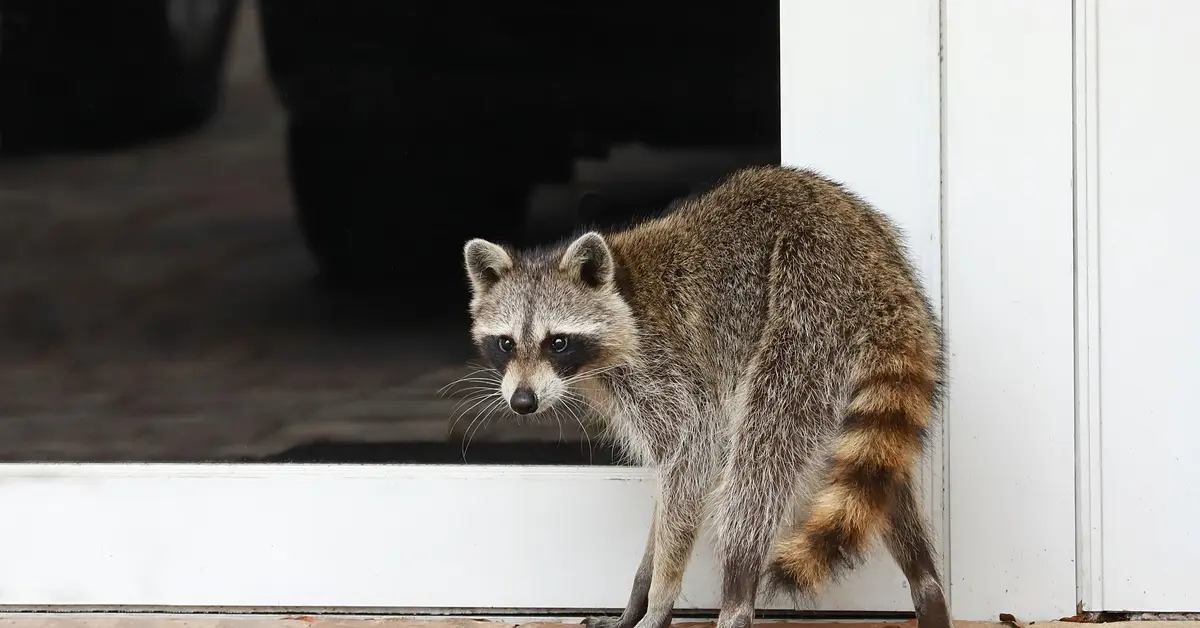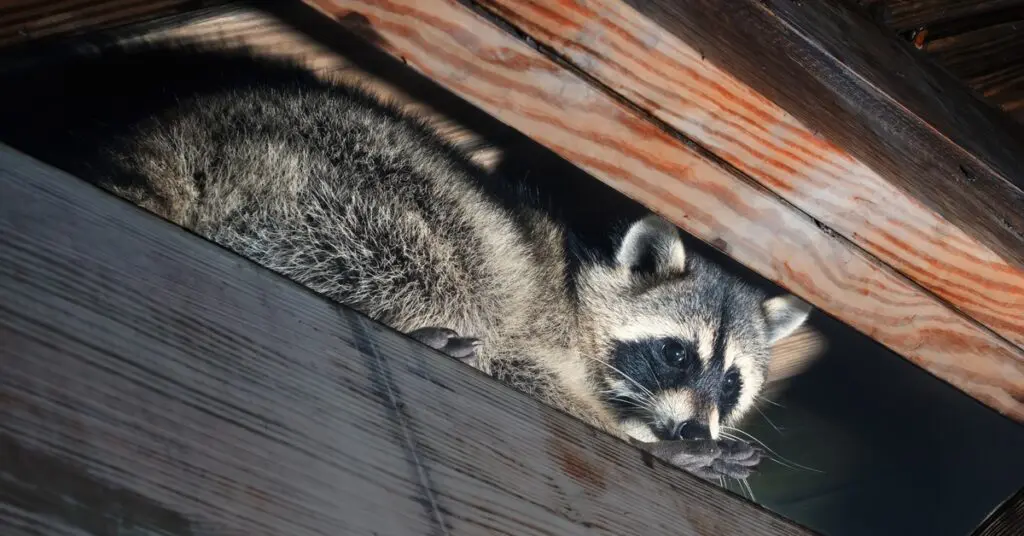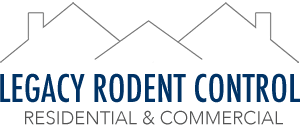
Why You Shouldn’t Ignore Raccoon Sightings Near Your Home
When homeowners see raccoons near their houses, they may think of them as cute animals with their masked faces and nimble hands. Many people will think nothing of an encounter with a raccoon on their property, trusting it will leave as swiftly as it came. However, remember that they are wild animals capable of displaying destructive and violent behavior.
Allowing raccoons to linger near your property can threaten your personal safety, property value, and even the health of your community. Learn why you shouldn’t ignore raccoon sightings near your home and how to guard yourself against them.
Raccoons May Become Aggressive
One reason you shouldn’t take the presence of a raccoon lightly is that they can become aggressive. Although you may usually see them scurry away when you encounter them, they can show violent behavior and attack if they feel you are putting them in danger, particularly females who want to protect their young.
This can pose a risk to your family members or even pets who stumble upon them by accident, with no intention of harming them. Their scratches and bites can deal out physical trauma and serve as a conduit for medical risks. For these reasons, avoiding direct engagement with raccoons in your vicinity is essential for your personal safety.
They May Target Your Trash
Your home’s garbage bin can be a treasure trove for raccoons. Driven by a keen sense of smell and armed with dexterous paws, these animals will break into unsecured or poorly constructed containers with ease. When rummaging through household waste, raccoons can create sprawling messes on your property.
This activity delights neighborhood rodents, all eager to exploit spilled food scraps and packaging. The aftermath leaves lingering odors and often attracts repeat visits. These feeding habits disrupt the sense of cleanliness most homeowners work hard to maintain and encourage ongoing infestations throughout the area.
Raccoons Can Do Damage to Your Home

Another reason why you shouldn’t ignore raccoon sightings near your home is that they can do considerable damage to your sanctuary. Raccoons possess remarkable climbing and digging skills, allowing them to enter weak points in your home’s roofing, siding, soffits, and vents. They often do this for the same reason you live in your home—they want a warm place for their families.
Their persistence often leads to chewed wiring, torn insulation, or gaping holes in building materials. Entry points, once discovered, grow larger with time, giving raccoons easy movement between safety and supply.
Moisture from leaks caused by their exploration leads to rot and a decline in air quality. These conditions will make your home less comfortable and more expensive to maintain.
They May Carry Diseases
Raccoons can also carry infectious diseases, including rabies, one of the best-known and most feared. Rabies exposure mandates immediate and costly treatment for any person or pet.
Another common threat from raccoons is Baylisascaris procyonis, also known as roundworm. Eggs from these parasites pass through raccoon droppings and persist in soil or on surfaces for years. Children who play in areas contaminated with raccoon feces risk ingesting eggs, leading to serious medical complications.
Another illness, leptospirosis, spreads via raccoon urine and can enter your body through an open wound. This disease affects both people and pets, resulting in flu-like symptoms that occasionally progress to liver or kidney damage.
Finally, raccoons can also carry canine distemper, parvovirus, and even Salmonella, all transferable to domestic animals. These threats make it essential to avoid any wild raccoon encounters.
Tips for Dealing With Raccoons

Although raccoons can pose threats to your home and safety, you can take proactive steps to keep them out and regain your peace of mind. Review these tips for discouraging raccoons from invading your property and dealing with them once they find their way in.
Secure Your Trash
Placing your household waste into sturdy bins that feature secure lids can prevent your home from becoming a food source. Metal containers often work well for deterring nimble paws and strong jaws.
You may want to try securing your cans further with the help of bungee cords to keep them out. In addition, consider adding motion sensor lights to keep them away during the nighttime hours or even double-bagging your trash so you can throw off their sense of smell. You can even wash your can to eliminate future attractive odors.
Eliminate Entry Points
If you’re worried that raccoons may find their way into your house to build a nest, you should perform a close inspection of your home. Look for gaps, loose vents, or weak rooflines. Sealing these locations with durable hardware cloth or sturdy wood can block access for curious raccoons.
Pay special attention to attic vents, chimneys, crawl spaces, and eaves. Overhanging tree branches, sprawling shrubs, and stacked firewood create easy on-ramps to roofs or siding, so keep plant growth trimmed and store wood piles away from external walls.
Routine maintenance, such as replacing damaged screens or shoring up gaps in fencing, diminishes the appeal for nesting raccoons. Addressing these vulnerabilities before raccoons discover them limits costly repairs and the risk of infestations later.
Call a Professional
If raccoon activity becomes persistent, you need to call in a professional. An exterminator can assess the risks on your property and use humane removal strategies that comply with local laws. These professionals use tested equipment and techniques to remove raccoons from your spaces.
Attempting removal yourself can lead to injuries, property damage, and potential legal issues. However, a knowledgeable exterminator will complete the job correctly and provide you with advice on preventing future invasions. You will save time and money and spare yourself the frustration of dealing with these elusive guests.
Call Legacy Rodent Control To Remove Raccoon Nests
After learning why ignoring raccoon sightings creates opportunities for safety and health risks, you can act more wisely when you spot one near your home. Taking their presence seriously and following these strategies will keep your family happy and healthy.
If you need assistance with raccoons on your property, contact Legacy Rodent Control today. Our Dallas raccoon control technicians will guide you through the process so you can enjoy a calm, contamination-free home once again.
